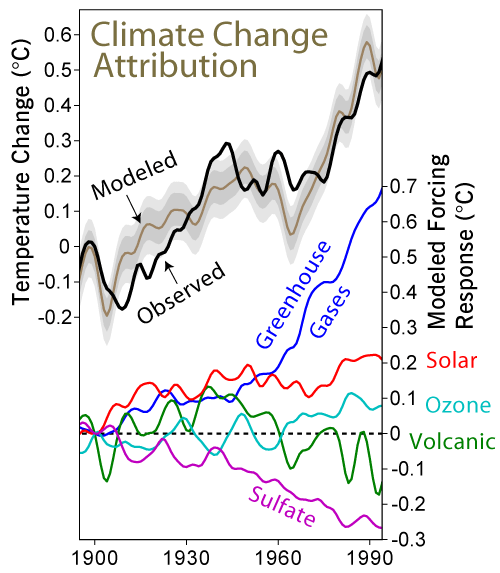Science, Homo Sapiens and Earth
I wish to discuss the subject mentioned recently in the last entries of that insufferable thread. The title of this thread suggests that the relationship of the three entities are the focus and I will begin with "Anthropogenic climate change", formerly and significantly known as "global warming".
Here are the four posts from the aforementioned thread.
Here are the four posts from the aforementioned thread.
Relayor wrote:Personally, I never allowed the slightest hope that I would live to see a reversal of this unscientific juggernaut (Anthropogenic cause of "global warming").
(_^_) .... on October 8, the Post carried an op-ed by Mann which attacked preemptively Rep. Darrell Issa (R-CA), the potential chairman of the House Committee on Oversight and Government Reform, who will likely launch an investigation of Climategate. Rep. James Sensenbrenner (R-WI) may do the same if he takes over a Committee on Climate Change and Energy Security. Mann asks, What could Issa, Sensenbrenner, and Cuccinelli possibly think they might uncover now, a year after the e-mails were published? He claims that he has been fully exonerated by several internal investigations of Penn State (his present employer), UEA, and the EPA and again appeals to the failed science of the IPCC (which, however, no longer gives any credence to his hockey stick result).
Rep Joe Barton (R-TX), in a letter to the Post (October 12) reminds that his public hearings in 2006 "made it clear that Mr. Mann's global warming projections were rooted in fundamental errors of methodology that had been cemented in place as 'consensus' by a closed network of friends."
In responding to Barton's letter of October 12, the chairman of the National Academy panel Prof. Gerald North (Letter, October 17) then claims that "we have not found any evidence that his [Mann's] results were incorrect or even out of line with other works published since his original papers." North's statement is factually incorrect: There are numerous papers, published in peer-reviewed journals, which show clearly that the 20th century was not the warmest in the past thousand years (as claimed by Mann). Medieval temperatures were substantially greater -- and so were temperatures during the earlier Roman Warm Period. All of this is in addition to the valid criticism of Mann's statistical methodology. Tellingly, Canadian Prof. Steven McIntyre and Ross McKitrick (M&M) showed that even random data fed into the Mann algorithm would always yield a warmest 20th century.
r-enter-ested wrote:I just can't believe that that was the last post!
Byron wrote:Well it's called climate change, not global warming, and any attempts to prove that it's unscientific or non-anthropogenic are laughably ridiculous at this stage.
As for that being the last post- at some point people are bound to give up on responding rationally to such obvious attempts at causing controversy and seeking attention. No, not en-terested, thanks.
r-enter-ested wrote:Well, it doesn't matter what you do or do not call it.
Let us see what your "rational" response would be to this:
What is "stasis"?
If you can answer that and tell us what is it's relevance, then you will have improved your chances of sleeping better at night.

